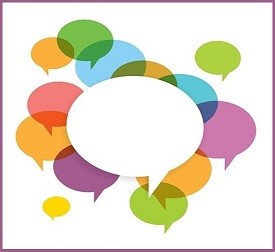Water Toolkit
Communication Types
- Everyday Communications
- Well-Known Issue Communications
- Emerging Issue Communications
- Crisis Communications
Communication Tools
Related Sites
Environmental Health Division
Drinking Water Risk Communication Toolkit
Everyday Communications

- Education and awareness about water: water as a shared resource, water systems information, drinking water basics, all the good work done to protect drinking water
- Communication strategies that can be implemented over time
- Examples: Communicating about source water protection, your treatment process, or water conservation
Strategies
Develop consistent messages for your system staff about information that is regularly shared
- Develop and share an internal FAQ/talking points document
- Use Dropbox or a shared drive to store resources for staff
- Identify one point person for media inquiries
Find quality resources
- Know where to find information before an issue or emergency occurs
- Find resources that are up to date
- Research online: use MDH, EPA, MRWA, and AWWA websites and information sheets
- Call MDH employees (start with your District Engineer)
- Call MN Rural Water Association or MN AWWA
- Use AWWA press releases
- Consult associations; ask industry contacts for advice and resources
- Borrow and adapt materials from other systems
Build partnerships
- Develop a list of partners in your area to contact
- Build a network of trusted partners who can help when needed
- Share and jointly develop needed resources
- Coalition of Greater Minnesota Cities
- Minnesota City Management Association
- League of Minnesota Cities
- Water Utilities Commission
- Minnesota chapter of American Water Works Association
- City Engineers Association of Minnesota
- Minnesota Public Works Association
- Minnesota Rural Water Association
- Minnesota Wastewater Operators Association
- Metropolitan Area Management Association
- Central Minnesota Water Education Alliance
Attend regular meetings, trainings, and conferences to learn more about resources and support available.
Network with other water professionals.
Provide education and outreach about how drinking water is provided
- Tell people about the good work that is happening every day
- Teach people about how your drinking water system works
- Notify people about regular monitoring events, including sampling and results
Check out the MDH Invisible Heroes Videos about Minnesota Drinking Water Providers
Educate customers about what is in drinking water
- Local drinking water chemistry
- The benefits of fluoride in drinking water
- Contaminants of emerging concern
Educate customers about source water
- Quantity and quality of water
- Water conservation efforts
- Source water protection
- Consumer Confidence Report
- City/utility newsletter
- Local newspaper
- Brochures in public spaces (e.g. library, city office)
- City of Foley Wellhead Protection Plan brochure (PDF), Rochester Public Utilities – Lead in Drinking Water Brochure (PDF)
- Booklets and fact sheets
- Website
- Put FAQ online
- Social media: Facebook, Twitter, blog
- Good for quick things, time-sensitive notices, fun things, engagement (questions/comments) (e.g. Drinking Water Week posts)
- City of Foley Facebook, City of St. Cloud Twitter, Rochester Public Utilities Facebook
- Local TV (record open houses or city council meetings and play) or YouTube
- Attend meetings and events (e.g. city council meetings, community events, home shows)
- Tours of system for customers
- Water tours for schools or summer camps
- Presentations in the community (e.g. Rotary, neighborhood meetings)
- Town halls and open houses
- Environmental education exhibits and displays
- Participating in educational campaigns like Drinking Water Week
Tools
Last Updated: 02/02/2026
